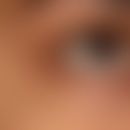Synonym(s)
DefinitionThis section has been translated automatically.
Acquired, undersupply of the organism with the thyroid hormones triiodothyronine (T3) and thyroxine (T4) and a resulting state of hypometabolism. In this particular hormone deficiency situation, numerous metabolic functions of the body slow down. The consequences are reduced physical and mental performance. The diagnosis of florid hypothyroidism is obvious. In less pronounced hypothyroidism, an uncharacteristic symptom is the main symptom; in some cases symptoms may be completely absent.
In children, very early acquired (mostly iodine deficiency in iodine deficient areas) or congenital hypothyroidism (1:3,270 births) can lead to physical and mental developmental delays, the full picture of which is referred to as (endemic) cretinism if not treated (see below congenital hypothyroidism).
ClassificationThis section has been translated automatically.
Primary (thyroid) hypothyroidism (the organ thyroid gland itself is the cause of hypothyroidism; secretion capacity of the thyroid gland is insufficient for the requirements of the organism; most frequent cause)
- Hypothyroidism as a consequence of an autoimmunological disease (e.g. chronic lymphocytic thyroiditis Hashimoto - (E06.3), very rarely in the wake of a polyglandular autoimmune syndrome (E31.0)).
- Iatrogenic hypothyroidism (after strumectomy, after radioiodine therapy, drug induced: thyrostatics, lithium, sunitinib, amiodarone)
Secondary pituitary hypothyroidism (very rare anterior pituitary insufficiency -hypopituitarism- TSH is reduced.
Tertiary hypothalamic hypothyroidism (very rare): caused either by a lack of thyrotropin releasing hormones (TRH), or by an interruption of the portal vascular system between the hypothalamus and the pituitary (so-called Pickardt's syndrome).
You might also be interested in
Occurrence/EpidemiologyThis section has been translated automatically.
Incidence: 0.25-1(2) %; increasing with age. w:m=4:1
ManifestationThis section has been translated automatically.
Occurrence already possible in childhood. Nowadays much more common in adulthood.
ClinicThis section has been translated automatically.
Symptoms develop slowly. Fatigue, loss of drive, inability to concentrate, increased need for sleep, sensitivity to cold, constipation, weight gain, psychomotor slowdown, slow blurred rough speech, cycle disorders, loss of libido, extended Achilles tendon reflex. The inclusion of hydrophilic glycosaminoglycans leads to swelling of the face (especially periorbital), the backs of the hands and feet, forearms and pretibial. Less frequent are paresthesias and carpal tunnel syndrome.
Age-related spothyroidism: Especially in older people, the full picture of the clinical hypothyroid symptoms does not usually develop, but rather an uncharacteristic oligosymptomatology with adynamia, constipation, sensitivity to cold, depressive detuning, cardiac symptoms with stenocardia. Symptoms are often interpreted as "complaints of old age".
LaboratoryThis section has been translated automatically.
Internal therapyThis section has been translated automatically.
For uncomplicated hypothyroidism 100-200ug L-thyroxine orally (creeping dosage in elderly and cardiacly damaged patients). Increase dose slowly (monthly by 5ug/day) until symptoms and laboratory normalize. Slightly elevated TSH (4-6 mU/l) is recommended for patients over 70 years of age.
LiteratureThis section has been translated automatically.
- Herold G (2019). Internal Medicine. Cologne S 759
Incoming links (1)
Morbus Morbihan ;Outgoing links (8)
Amiodarone-induced thyroiditis; Chronic lymphocytic thyroiditis; Ft4; Glycosaminoglycans (inci); Sunitinib; Thyroxine; Triiodothyronine; Tsh;Disclaimer
Please ask your physician for a reliable diagnosis. This website is only meant as a reference.




